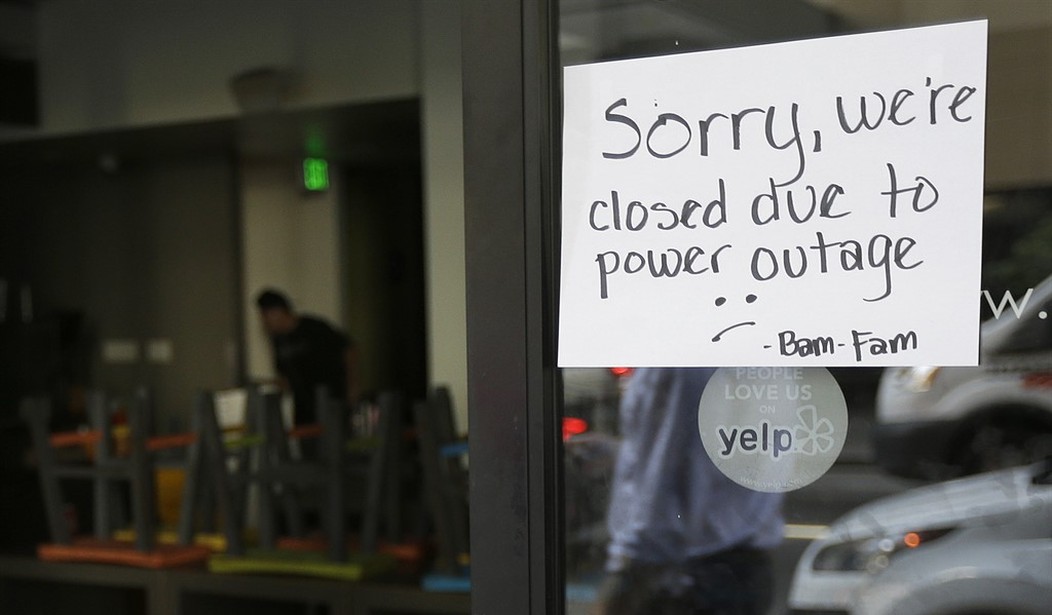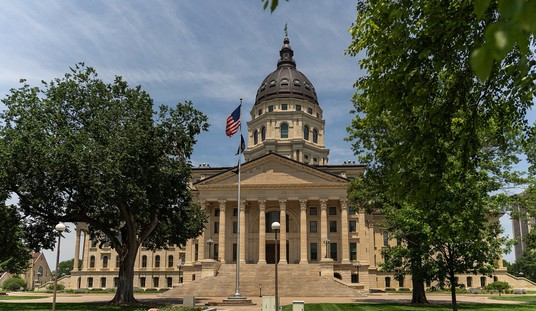I first reported in April 2023 about a new California state law that would require utility companies to come up with a fixed-rate plan as a way to help stabilize rates and make billing more "equitable."
Hence, the state’s soon-to-be-implemented "equitable" policy will base residential electricity bills on income rather than usage, even as public and political opposition to the idea builds in the Democratic coalition.
I titled my 2023 article "Marxism, California Style? New State Law Will Lead Energy Companies to Bill Customers Based on Income" because of a phrase popularized by Karl Marx as part of a larger communist ideological statement (emphasis mine):
In a higher phase of communist society … only then can the narrow horizon of the bourgeois right be fully left behind, and society inscribe on its banners: from each according to his ability, to each according to his needs.
If that phrase doesn't accurately describe the no-longer-Golden State's soon-to-be electricity billing plan, please tell me where I've gone wrong.
As Newsom continues to feel the heat as he awaits a final proposal from the state's utility commission that's consistent with the 2022 law that required the agency to devise an income-based billing system, a spokesman said on Tuesday that the governor is looking forward to it.
California must combat climate change by rapidly expanding the use of clean electricity in our vehicles and buildings, while at the same time making it more affordable for low-income Californians.
However, not all Democrat lawmakers in the state share Newsom's exuberance, including Democratic assemblyman Marc Berman, who said in a Tuesday press conference:
Californians are fed up. My constituents are pissed off. I know because they told me over and over again at every community coffee that I had in the fall and winter. Their rates keep going up.
Here's a bit of background:
Newsom’s commitment to California’s income-based electricity billing plan followed a press conference by a group of Democratic lawmakers who want to reverse the policy, after they voted in its favor as part of a 2022 budget bill.
Citing public outcry, they condemned the plan as another price hike for Californians’ astronomical energy bills that would punish conservation-minded households while also subjecting everyone to invasive income checks.
This emerging rift over a policy that’s been praised by supporters as an "equitable" boost for the state’s transition to zero-emission electricity is a rare hiccup in the Democratic supermajority’s typically lockstep approach to energy mandates.
Opponents include tenants’ advocates, who say the extra fees will add to renters’ already sky-high living costs, environmental groups, and even supporters of solar energy. Other powerful environmental groups, including the Natural Resources Defense Council, support the income-based system.
The growing public pressure over the issue may signal that Californians, a majority of whom said last year that environmental regulations are worth the cost, have hit a limit to their tolerance for Sacramento’s energy policies.
Electricity rates have risen nearly 70 percent since 2010, when the state started to break from fossil fuels, and California households pay nearly 83 percent more than the average for homes elsewhere in the United States.
Typical politically-driven Democrats. They were for the plan until public outcry reached a point that led them to condemn the plan.
Edward Ring, cofounder of the California Policy Center, said Newsom hides behind "environmentalist values."
Newsom and the public utilities commission hide behind environmentalist values to justify imposing an unfair burden on any Californian who doesn’t qualify for subsidies — and in fact makes it more expensive for everyone else.
Is there any doubt? Newsom has pushed screwball "green energy" plans for years, most notably a plan to ban the sale of new gas-powered passenger vehicles by cars by 2035, which some experts say would collapse the state's power grid — even with projected growth of the grid.
California's utility commission has not yet determined how income-based billing will be determined. Utility companies initially pitched a proposal that would have low-income households pay as little as $15 a month, while high-income households would pay up to $128 per month — plus for usage. The companies retreated after public outcry.
Jenn Engstrom, the state director of the California Public Interest Research Group, which opposes the income-based fee system, said it would "punish those of us committed to energy conservation and efficiency."
This not only diminishes consumer control over energy bills, but a system that incentivizes high energy consumption could increase costs on the entire system and lead to higher electricity bills for everyone.
Finally, Terrie Prosper, director of news and outreach for the state’s utility commission, said a fixed-rate plan would be a "critical step toward our climate goals" because owners of electric vehicles would end up paying less to charge their cars.
Is that the most out-of-touch statement you've read today, or what?
Meanwhile, Gavin Newsom continues to pander as the California band plays on — dissonant as hell.
SEE MORE:
COMEDY GOLD: US Oil and Gas Association Nails Newsom on His Bad Spin During Debate
New Laws for 2024 Taking California Further Into Crazy Town
It's Official: CA Legislature Passes Draconian 'Gender-Affirming' Bill 957, Heads to Newsom's Desk













Join the conversation as a VIP Member